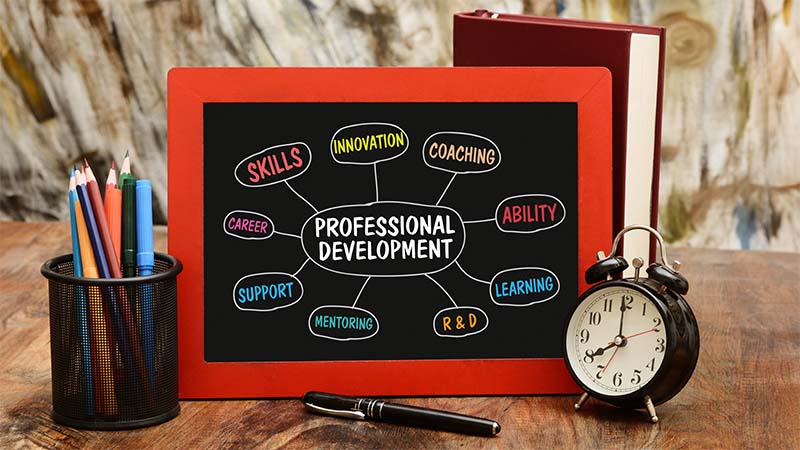Managing a camp effectively requires meticulous planning, strong leadership, and a clear vision. Whether you’re overseeing a summer camp, educational retreat, or a specialized camp for skill development, efficiency in operations can significantly enhance the experience for both campers and staff. Implementing the right strategies can help streamline processes, improve communication, and ensure a safe and enjoyable environment. In this article, we will explore the top ten strategies for efficient camp management, providing practical tips and insights for camp directors and managers.
Detailed Planning and Organization
Effective camp management starts with comprehensive planning and organization. This involves setting clear goals, developing a structured schedule, and preparing for potential challenges.
- Establish Clear Objectives: Define the primary goals of your camp. Are you focusing on educational enrichment, physical activities, or social development? Clear objectives guide your planning and help measure success.
- Develop a Detailed Schedule: Create a daily and weekly schedule that outlines all activities, meal times, and rest periods. A well-structured schedule ensures smooth transitions and maximizes the use of time.
- Prepare for Contingencies: Anticipate potential issues such as weather changes, medical emergencies, or staffing shortages. Having contingency plans in place helps maintain stability and safety.
In summary, detailed planning and organization set the foundation for a well-run camp. By defining objectives, creating structured schedules, and preparing for contingencies, camp managers can ensure a seamless and enjoyable experience for everyone involved.
Effective Communication
Clear and consistent communication is crucial in camp management. It ensures that everyone is informed, aligned, and able to perform their roles efficiently.
- Establish Communication Channels: Utilize tools like emails, messaging apps, and bulletin boards to keep everyone informed. Regular updates and announcements help maintain transparency. With Camp-in-1, you can easily send bulk emails to a subset of camper family members and staff, ensuring that important information reaches the right people quickly and efficiently.
- Hold Regular Meetings: Schedule daily briefings with staff to discuss the day’s agenda, address concerns, and gather feedback. This keeps everyone on the same page and fosters a collaborative environment.

- Encourage Open Dialogue: Create an environment where staff and campers feel comfortable voicing their opinions and suggestions. Open communication leads to better problem-solving and innovation.
Effective communication bridges gaps and fosters a sense of community within the camp. By establishing clear channels, holding regular meetings, and encouraging dialogue, camp managers can create a cohesive and responsive team.
Staff Training and Development
Investing in staff training and development is essential for efficient camp management. Well-trained staff are better equipped to handle their responsibilities and provide high-quality experiences for campers.
- Comprehensive Training Programs: Develop training programs that cover all aspects of camp operations, from safety protocols to activity planning. Ensure that staff are familiar with the camp’s goals and values.
- Ongoing Professional Development: Offer opportunities for staff to enhance their skills through workshops, certifications, and seminars. Continuous learning keeps staff motivated and improves performance.

- Mentorship and Support: Pair new staff members with experienced mentors who can provide guidance and support. Mentorship fosters growth and helps integrate new employees into the camp culture.
Staff training and development create a competent and confident team. By providing comprehensive training, opportunities for professional growth, and mentorship, camp managers can build a strong foundation for successful camp operations.
Camper Engagement and Participation
Engaging campers and encouraging their participation is vital for a dynamic and enjoyable camp experience. Active involvement leads to better learning outcomes and stronger community bonds.
- Interactive Activities: Design activities that are interactive and hands-on, allowing campers to actively participate and learn. Activities should be varied to cater to different interests and skill levels.
- Camper Feedback: Regularly solicit feedback from campers about their experiences and preferences. Use this information to tailor activities and improve the camp program.
- Inclusive Environment: Ensure that all campers feel included and valued. Create an atmosphere where diversity is celebrated, and everyone has an opportunity to contribute.
Camper engagement and participation are key to a successful camp. By creating interactive activities, seeking feedback, and fostering an inclusive environment, camp managers can enhance the overall camp experience.
Safety and Risk Management
Prioritizing safety and effective risk management is crucial for any camp. Ensuring a secure environment protects campers and staff and builds trust with parents and stakeholders.
- Safety Protocols: Establish clear safety protocols for all activities and facilities. Regularly review and update these protocols to address new risks and ensure compliance.
- Emergency Preparedness: Develop and practice emergency response plans for various scenarios such as natural disasters, medical emergencies, or security threats. Conduct regular drills to ensure readiness.
- Health and Hygiene: Implement strict health and hygiene practices to prevent the spread of illness. This includes regular handwashing, clean facilities, and access to medical care.

A focus on safety and risk management creates a secure camp environment. By establishing protocols, preparing for emergencies, and promoting health and hygiene, camp managers can ensure the well-being of all participants.
Resource Management
Efficiently managing resources is essential for the smooth operation of a camp. This includes everything from budgeting and supplies to facilities and equipment.
- Budget Planning: Develop a detailed budget that covers all camp expenses, including staff salaries, supplies, and maintenance. Monitor spending to stay within budget and allocate funds effectively.
- Inventory Management: Keep an accurate inventory of supplies and equipment. Regularly check stock levels and reorder items as needed to avoid shortages.
- Facility Maintenance: Ensure that all camp facilities are well-maintained and safe. Regular inspections and repairs prevent issues from becoming major problems.
Effective resource management ensures that the camp runs smoothly and efficiently. By planning budgets, managing inventory, and maintaining facilities, camp managers can optimize operations and reduce costs.
Technology Integration
Leveraging technology can greatly enhance camp management. From registration systems to communication tools, technology streamlines processes and improves efficiency.
- Online Registration: Implement an online registration system that simplifies the sign-up process for parents and staff. This reduces paperwork and allows for easy data management.
- Digital Communication: Use digital communication tools like email, messaging apps, and social media to keep everyone informed and connected. These tools facilitate quick and effective communication.
- Activity Tracking: Utilize software to track camper participation and progress in activities. This helps tailor programs to individual needs and measure outcomes.
Integrating technology into camp management improves efficiency and enhances the overall experience. By adopting online registration, digital communication, and activity tracking, camp managers can streamline operations and provide better services. For a comprehensive camp management software solution, consider using Camp-in-1, which offers various features to simplify and enhance your camp operations.
Program Evaluation and Improvement
Regular evaluation and continuous improvement of camp programs are essential for maintaining high standards and meeting camper needs.
- Feedback Mechanisms: Implement feedback mechanisms such as surveys and suggestion boxes to gather input from campers, parents, and staff. This information is invaluable for program evaluation.
- Performance Metrics: Establish metrics to measure the success of different programs and activities. Use data to identify strengths and areas for improvement.

- Continuous Improvement: Regularly review and update programs based on feedback and performance metrics. Continuous improvement ensures that the camp remains relevant and effective.
Program evaluation and improvement help maintain high standards and meet the evolving needs of campers. By gathering feedback, measuring performance, and making continuous improvements, camp managers can enhance program quality and effectiveness.
Community Building
Building a strong camp community fosters a sense of belonging and enhances the overall camp experience. A supportive community encourages collaboration, friendship, and personal growth.
- Team-Building Activities: Organize team-building activities that encourage cooperation and trust among campers and staff. These activities help build strong relationships and a sense of unity.
- Community Events: Plan community events such as talent shows, campfires, and group outings. These events provide opportunities for everyone to come together and celebrate.
- Positive Culture: Promote a positive and inclusive camp culture where respect, kindness, and support are valued. A positive culture enhances the overall camp experience.
Community building is crucial for a successful camp experience. By organizing team-building activities, planning community events, and promoting a positive culture, camp managers can create a supportive and cohesive camp community.
Sustainable Practices
Adopting sustainable practices is increasingly important for camp management. Sustainability not only benefits the environment but also teaches campers valuable lessons about conservation and responsibility.
- Eco-Friendly Policies: Implement eco-friendly policies such as recycling, waste reduction, and energy conservation. Encourage campers and staff to participate in these initiatives.
- Sustainable Resources: Use sustainable resources and materials for camp activities and facilities. This includes using renewable energy sources, biodegradable products, and eco-friendly equipment.
- Environmental Education: Incorporate environmental education into the camp program. Teach campers about the importance of sustainability and how they can make a positive impact.
Sustainable practices are essential for modern camp management. By implementing eco-friendly policies, using sustainable resources, and providing environmental education, camp managers can create a greener and more responsible camp environment.
Conclusion
Efficient camp management requires a multifaceted approach that encompasses planning, communication, training, engagement, safety, resource management, technology, evaluation, community building, and sustainability. By implementing these top ten strategies, camp managers can create a well-organized, dynamic, and enjoyable camp experience for everyone involved. As the needs and expectations of campers evolve, continuous improvement and adaptability will ensure that camps remain relevant and effective, providing lasting memories and valuable lessons for future generations. For an all-in-one solution to streamline your camp management, explore the features of Campin1 and take your camp to the next level.
